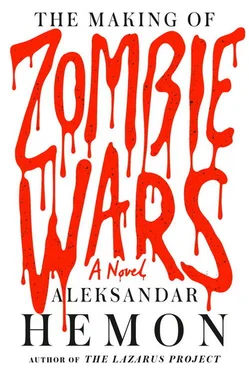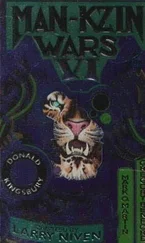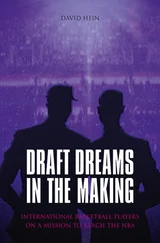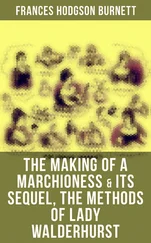“You could be a firefighter,” Joshua offered.
“Firefighter? Who wants to be a firefighter?”
“Many kids. It’s a very noble profession. They fight fire. They save lives. On nine-eleven, they saved hundreds of people.”
“Why aren’t you a firefighter?”
When Joshua was Noah’s age he wanted to be a speedboat racer, piano tuner, nuclear physicist, monkey wrangler. Never a firefighter. South Side Irish became firefighters. Not North Side Jews.
“When I was your age I wanted to be a firefighter. It was my dream. But then my mom and dad got divorced,” Joshua said.
A flash of pain on Noah’s face caused a surge of shameful pleasure in Joshua’s chest.
“Well,” Noah said on the seventh floor. “I don’t think I want to be a firefighter.”
The boy did indeed have some feelings; he hadn’t turned into a sociopath quite yet. They lurched between floors on their way down amid the whooshing and screeching of the machinery.
On the third floor, Noah said: “I’m going to be a doctor.”
* * *
Doug the former hip-flexing competitive dancer; Doug the manager of some shady money-laundering fund that made him spend months at a time in Dubai; Doug the wiry charmer, the casual prick. Doug the Dougster. What did she ever see in him? What was it she didn’t wish to see now? There had been a time when Doug had offered to his young brother-in-law sagely advice on the various means of getting laid; another when he’d shared a line of Wall Street — quality coke. There had been a time when Doug would wink at Joshua randomly across the family dinner table, as if to confirm the feasibility of some conspiratorial plan. “It will be okay,” Doug’s twitching eyelid would signal. “Don’t you worry about any of it.” But the conspiracy would never pan out, simply because Joshua could never understand what exactly it was supposed to be.
“How’s Bernie?” Doug asked. He wore a snazzy suit, his tie rakishly loose, his sunglasses pushed up above his tanned forehead. It was actually him that Billy/George resembled, Joshua abruptly recognized: he could now see the same subcutaneous wiring, the same energetically deceitful sheen on their respective surfaces. Noah was leaning into Doug’s hip, hugging his thigh, eager to get away from his passive-aggressive uncle. A little convoy of overweight people in scooter chairs progressed glacially across the vast foyer.
“Not that good,” Joshua said, in the vain hope that Doug might feel guilty, which he most obviously didn’t.
“Poor guy,” Doug said.
“Let’s go, Dad,” Noah said.
“I want him to get better soon. I like him,” Doug said.
“Me too,” Joshua said.
“I’m sure the doctors are taking good care of him,” Doug said. “This is a top-shelf hospital.”
“And how are you doing?” Joshua asked. Noah was watching the scooter convoy advance toward the elevators, his back now turned to Joshua, Doug absentmindedly stroking his head.
“I’m good,” Doug said. He was trying to read Joshua, assuming — correctly — that Joshua didn’t really care about his well-being.
“Janet is good too,” Joshua said.
Doug nodded faintly wistfully, as if remembering her name from way back. “Good,” he said. “I’m glad.”
“She’ll destroy you,” Joshua said. “She’ll rip you apart.”
Doug laughed. He laughed like someone who had just been told good news, stroking his son’s blond hair all along.
“I seriously doubt that,” he said. “And it’s not something you yourself should worry about.”
As the scooter convoy reached the elevators, Noah turned to look at Joshua with what could be interpreted only as bitter contempt. How is this nightmare different from any other nightmare?
“Let’s get out of here,” Noah said to his father. “Let’s go see a movie.”
Doug pulled out a wad of dollars, peeled off a twenty, and handed it to Noah. “Go get yourself a little bit of whatever you want,” he said. Noah considered the twenty then took off toward a TCBY store, where for his money he could get gallons of high-fructose yogurt.
“Okay,” Doug said. “Let’s talk to each other like men.”
How did men talk? Bare-chested? While arm wrestling? Nodding a lot?
“I know this is hard on the family,” Doug said. “But it’ll pass.”
“Of course it’ll pass,” Joshua said. “The way a tornado passes, leveling entire communities.”
“I don’t need a lecture,” Doug said.
“What do you need, then?” Joshua said.
“I’m off to Iraq,” Doug said.
“You joined the army?” Joshua said. Doug had it in him; it had never before occurred to Joshua, but he did have soldierness in him. Perhaps it was the way he stood before Joshua: straight as an arrow, hands on his hips, feet apart, chin pointing out. He could see him barking at his underlings, in desert camos, the sunglasses under the helmet, the hand gun on his thigh, spitting out the sand. He’d love the smell of napalm in the morning.
“Fuck, no! I’m not that crazy,” Doug said. “Don Rumsfeld and his people are setting up a team to get the economy running. I used to do stuff for him when he was in Chicago. We’ll be handing out money, pretty much. We’ll provide the camelfuckers with a starter kit for market capitalism. It’s a dream job. They need people like you wouldn’t believe it.”
There was Doug, winking at him again, as it were, across the divide, including him even if he didn’t have to.
“I suppose you’ll need buckets of cash for the divorce,” Joshua said.
“Yup. There might be reparations aplenty,” Doug said. “You should come along with me, make some dough. Then you can write your scripts for fun.”
“Does Noah know you’re going?”
“I’m about to tell him,” Doug said, looking toward TCBY.
The end of the heavy convoy was filing into the elevator that would take them up to some kind of disinfected heaven. Noah was on his way back, digging yogurt out of a tub, licking his lips before and after he deposited a lump in his mouth.
“I’ll be coming and going, but looks like I’ll be gone a lot. I was going to ask you to watch out for Noah. Jan can be a little, you know, overwhelming. He needs a man in his life.”
“Sure,” said Joshua, the man.
“It’s not like I’m gonna shoot at the towelheads and sleep in a tent. It shouldn’t be too hard.”
“Don’t get too killed.”
“Nah!” Doug said. “It should be a cakewalk.”
EXT. CORNFIELD — DAY
A vast field. Ruth parts the jungle-like greenness of corn, while Major Klopstock has Jack firmly strapped to his back. They move fast. Ruth occasionally checks if Young Woman follows in their wake. Young Woman drops to her knees, then rises to go on walking. She glares at Ruth to indicate that she is determined to make it.
A choir of zombie GROANS AND HOWLS somewhere in the distance. An overhead shot shows that Major K, the women, and the boy are in the center of the cornfield, while stick-thin zombies are all around, wandering aimlessly. Neither Major K and his group nor the zombies are aware of a well-armed unit surrounding all of them. Two concentric circles, at the center of which is Major K.
What do you do after you see your very own father fallen and helpless, after you find yourself caught up between your sister and her Iraq-bound spouse, after you’ve been promoted against your secret wishes to the rank of a responsible uncle? What do you do? What do you do instead of going home (home?), where a refugee and her daughter are squatting, taking their time to figure out what to do next? What do you do if there are decisions to be made, penitence and rebuilding to be done after you were carpet-bombed by life? What do you do? You do what you must: you have a drink at a fount of manhood, because that’s what you know, because that’s where the central fear booth is located.
Читать дальше












